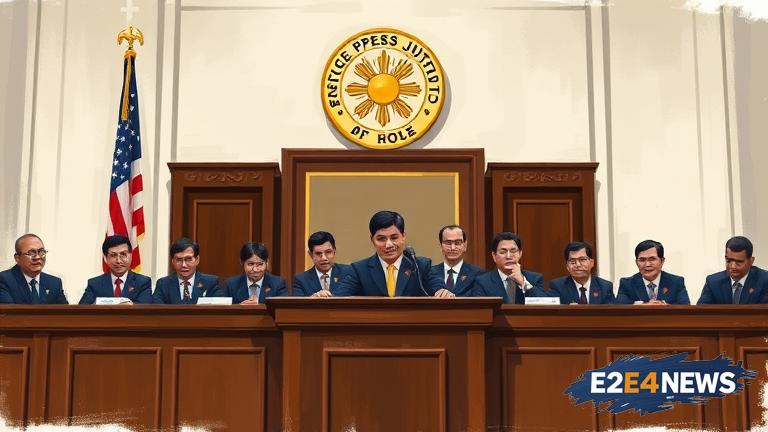The Philippine House of Representatives’ Justice Committee has announced that it will conduct an investigation into the US extradition request for Apollo Quiboloy, the founder of the Kingdom of Jesus Christ church. Quiboloy is accused of sex trafficking, child abuse, and other crimes, and the US government has requested his extradition to face trial. The Justice Committee’s probe will look into the circumstances surrounding the extradition request and the allegations against Quiboloy. The committee will also examine the legal implications of the extradition request and the potential consequences for Quiboloy and his followers. Quiboloy has denied all allegations against him and has claimed that the charges are part of a conspiracy to destroy his church. The US government has accused Quiboloy of using his church to recruit and exploit women and children for sex and labor. The extradition request has sparked controversy in the Philippines, with some lawmakers and human rights groups expressing concerns about the treatment of Quiboloy and his followers. The Justice Committee’s investigation is expected to be thorough and impartial, and will aim to uncover the truth behind the allegations against Quiboloy. The committee will also consider the potential impact of the extradition request on the Philippines’ relations with the US. The probe will be conducted in accordance with Philippine law and international treaties, and will ensure that the rights of all parties involved are protected. The investigation will also look into the role of the Philippine government in the extradition process and whether it has fulfilled its obligations under international law. The US government has provided evidence to support its extradition request, including testimony from alleged victims and witnesses. Quiboloy’s lawyers have argued that the evidence is insufficient and that the extradition request is based on false allegations. The Justice Committee’s probe will examine the evidence and determine whether it is sufficient to support the extradition request. The committee will also consider alternative solutions, such as trying Quiboloy in the Philippines instead of extraditing him to the US. The investigation is expected to take several weeks or even months to complete, and will involve testimony from witnesses, experts, and other stakeholders. The Justice Committee’s findings will be presented to the House of Representatives and will inform the Philippine government’s decision on the extradition request. The probe is a significant development in the case against Quiboloy, and will have important implications for the Philippines’ justice system and its relations with the US. The investigation will also shed light on the allegations against Quiboloy and the circumstances surrounding the extradition request. The Justice Committee’s probe is a crucial step towards ensuring that justice is served and that the rights of all parties involved are protected. The committee’s findings will be closely watched by the public and the media, and will be subject to scrutiny and debate. The investigation is a complex and sensitive issue, and the Justice Committee will need to navigate a range of legal, political, and diplomatic considerations. The probe will require careful consideration of the evidence and the law, as well as the potential consequences of the extradition request. The Justice Committee’s investigation is an important example of the Philippine government’s commitment to upholding the rule of law and protecting human rights. The probe will also demonstrate the independence and impartiality of the Philippine justice system, and will show that the government is willing to take a thorough and nuanced approach to complex and sensitive issues.
